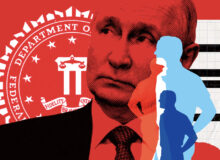Martin Luther’s Brilliance Still Amazes — By Quin Hillyer at PJ Media;
….
This coming Tuesday, Oct. 31, the quincentennial of Luther posting his famous “95 Theses” on a church door in Wittenberg, provides occasion for us to marvel. It remains mind-boggling that a monk far from the cultural center of Christendom, at a time when mass communication was almost nonexistent and much of the population was illiterate, could so quickly catalyze such massive upheavals in Western Culture.

Granted, there was a relative explosion of literacy after Gutenberg’s invention of the printing press in the 1440s, and the Renaissance that had begun a century earlier in Italy was by 1517 beginning to reach full flower in the rest of Europe. Still, there was no “mass media,” no tradition of “news” organizations, and obviously no Internet, social media, or even rapid mail service. Yet within seven short years, what Luther had begun as a limited intellectual revolt against various church corruptions had, amazingly, become a nearly continent-wide conflagration not just of religious disputes but of socio-political upheaval as well.
As Luther more and more broadly challenged various theological positions and practices of the existing church, he also insisted ever more strongly that individuals should study Scripture without the mediations of church authorities. Soon enough, the spin-offs from Luther’s spiritual egalitarianism (of a sort) led to a new assertion of individual dignity and liberty (again, of a sort) that contributed in turn to the later political philosophy of John Locke and, derivatively, some of the American founders…..
What would it take to have a Luther-like effect today? By Quin, at National Review Online’s “The Corner.”
…. I thought NRO readers would appreciate the Cliff’s Notes version of how [my novel Mad Jones, Heretic] came to pass. One of my two majors at Georgetown University was Theology, and my main concentration within the field centered on the Reformation-era debates. (I found myself somewhat more attuned to Erasmus than Luther, but that’s another story.) Somewhere along the line, I wondered what it would take for somebody in our modern world to cause even a simulacrum of the history-altering upheaval begat by Luther.
Meanwhile, I also was continually struck by observing that the single biggest obstacle to faith, among the people I know who are agnostic or atheist, was the age-old problem of how a loving God allows so much pain and suffering. (Yeah, I know: not exactly an original insight.) I think I am not alone in finding theodicy — a vindication of God’s goodness in the face of so much evidence of evil — to be a difficult idea to which to bear witness, against a doubter’s deep reservations. Somehow, literally over a single night back in 1998 or 1999, a scenario came into my head that combined these two themes — theodicy and a new Luther raging not against a corrupt church but (at least at first) against an apparently cruel God — in a storyline which, if kept satirical, would be entertaining rather than ponderously theoretical/theological….






